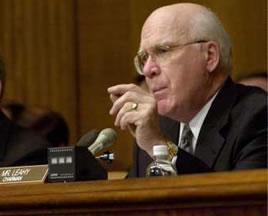As a New Jersey and Philadelphia medical malpractice attorney, I found a recent article published in the New England Journal of Medicine quite interesting. It posed a question regarding surgeons and their often wearisome schedules; Should a surgeon who has been deprived sleep in the past 24 hours be obligated to do disclose such to his/her patient?
Surgeons and Surgery Schedules
 Sleep deprivation can affect a surgeon or physician’s clinical and physical performances as severely as alcohol intoxication, and therefore increase risk of medical malpractice. But for a hospital, the task of ensuring that it’s surgeons are not suffering from fatigue has proven quite a challenge. Hospitals are in need of 24/7 coverage of clinical procedures, and must provide continuous care. Hospital trainees currently have work regulations set forth by the Accreditation Council of Graduate Medical Education that restrict them to a maximum of 16 consecutive working hours followed by a minimum of 8 hours off-duty. These types of regulations do not currently exist for fully trained physicians, who work multiple on-call and overnight shifts a week, strategically placing elective surgical procedures in between.
Sleep deprivation can affect a surgeon or physician’s clinical and physical performances as severely as alcohol intoxication, and therefore increase risk of medical malpractice. But for a hospital, the task of ensuring that it’s surgeons are not suffering from fatigue has proven quite a challenge. Hospitals are in need of 24/7 coverage of clinical procedures, and must provide continuous care. Hospital trainees currently have work regulations set forth by the Accreditation Council of Graduate Medical Education that restrict them to a maximum of 16 consecutive working hours followed by a minimum of 8 hours off-duty. These types of regulations do not currently exist for fully trained physicians, who work multiple on-call and overnight shifts a week, strategically placing elective surgical procedures in between.
Furthermore, continuous sleep deprivation can lead to more serious problems, creating a larger concern regarding it’s effect on patients. Surveys show that patients would be very concerned if they were told that their physicians had gone 24 hours without sleep, and 80% of those surveyed said they would request new providers. Considering how important this is to so many patients, it seems informed consent should be demanded in these situations.
The Sleep Research Society has proposed legislation that would require medical providers who have been awake for 22 of the last 24 hours to:
“inform their patients of the extent and potential safety impact of their sleep deprivation and to obtain consent from such patients prior to providing clinical care or performing any medical or surgical procedures.”
Patients should be informed of the impairments sleep deprivation and fatigue can cause, as well as the increased risk of complications associated with proceeding. Patients should then be given the opportunity to proceed, re-schedule, or proceed with a different physician. Until hospitals can staff their facilities accordingly, patients will have to play a more active role in their medical care in order to protect themselves from medical malpractice and negligence.
Medical Malpractice Lawyers in New Jersey and Philadelphia
If you or a loved one have suffered at the hands of a negligent medical provider, please contact the Mininno Law Office for a free case evaluation. You may also call for a free consultation at (856) 833-0600 in New Jersey, or (215) 567-2380 in Philadelphia. The medical malpractice lawyers at the Mininno Law Office are experienced and skilled in earning victims their full and fair compensation.
 A key issue in the tort reform debate involves “defensive medicine.” Supporters of
A key issue in the tort reform debate involves “defensive medicine.” Supporters of  White House aides have provided that President Obama is strongly opposed to placing caps on damages for injured patients, but would be open to utilizing other avenues of resolution, such as “health courts” or special arbitration systems.
White House aides have provided that President Obama is strongly opposed to placing caps on damages for injured patients, but would be open to utilizing other avenues of resolution, such as “health courts” or special arbitration systems.  Chad Aders, 37, was prescribed a Duragesic patch in the ER by Dr. Bryan Lilly in July of 2004. The patch contains a very potent narcotic called Fentanyl that enters the bloodstream through the skin. Dr. Lilly prescribed 75 micrograms of the drug which is well over the manufacturer’s reccomendations. Aders took the prescription to the drug store, got it filled, applied the patch as he was told, and went to bed. He was found dead in his bed the following day. His children were seven, eight, and seventeen.
Chad Aders, 37, was prescribed a Duragesic patch in the ER by Dr. Bryan Lilly in July of 2004. The patch contains a very potent narcotic called Fentanyl that enters the bloodstream through the skin. Dr. Lilly prescribed 75 micrograms of the drug which is well over the manufacturer’s reccomendations. Aders took the prescription to the drug store, got it filled, applied the patch as he was told, and went to bed. He was found dead in his bed the following day. His children were seven, eight, and seventeen. 
 As medical malpractice lawyers, we find that those who accuse medical malpractice claims of being frivolous do not understand the extent of the damage done to people’s lives when negligent doctors make irreversible mistakes. Tort reform would only serve to harm those who are already victims of their health system, and reduce liability for those companies that, by merit of their missions, should be working for their consumers, not against them.
As medical malpractice lawyers, we find that those who accuse medical malpractice claims of being frivolous do not understand the extent of the damage done to people’s lives when negligent doctors make irreversible mistakes. Tort reform would only serve to harm those who are already victims of their health system, and reduce liability for those companies that, by merit of their missions, should be working for their consumers, not against them.  During litigation, Dr. Kifuji testified (in return for immunity from prosecution) that she had been fooled by the children’s parents, Carolyn and Michael Riley, who lied about symptoms and mental conditions in order to collect federal disability checks for their offsprings’ alleged behavioral and mental disorders. Many questioned why, after indications that the Rileys could be harming their children, Dr. Kifuji didn’t do more to protect the youngsters.
During litigation, Dr. Kifuji testified (in return for immunity from prosecution) that she had been fooled by the children’s parents, Carolyn and Michael Riley, who lied about symptoms and mental conditions in order to collect federal disability checks for their offsprings’ alleged behavioral and mental disorders. Many questioned why, after indications that the Rileys could be harming their children, Dr. Kifuji didn’t do more to protect the youngsters. Olivia Cull underwent surgery as a baby that left one side of her heart smaller than the other. She lived her life this way, until she was a senior in high school. Doctors wanted to install a catheter in her heart to prep for the final surgery that would correct the small side of her heart. She was nervous, but her mother reassured her that the catheterization procedure would only take a few hours, and that she had done it many times before. Doctors told the Culls Olivia would be home before dinner.
Olivia Cull underwent surgery as a baby that left one side of her heart smaller than the other. She lived her life this way, until she was a senior in high school. Doctors wanted to install a catheter in her heart to prep for the final surgery that would correct the small side of her heart. She was nervous, but her mother reassured her that the catheterization procedure would only take a few hours, and that she had done it many times before. Doctors told the Culls Olivia would be home before dinner.  In Pennsylvania, late-term abortions, or abortions after 24 weeks, are illegal. However, Dr. Gosnell, with no certification in obstetrics or gynecology, was performing them out of his office. These late-term abortions often resulted in the birth of living fetuses. It is alleged that Dr. Gosnell and his staff would then kill these fetuses by “plunging scissors into their spinal cords.” (Weisenberg, Brin Wall Street Journal 1/20)
In Pennsylvania, late-term abortions, or abortions after 24 weeks, are illegal. However, Dr. Gosnell, with no certification in obstetrics or gynecology, was performing them out of his office. These late-term abortions often resulted in the birth of living fetuses. It is alleged that Dr. Gosnell and his staff would then kill these fetuses by “plunging scissors into their spinal cords.” (Weisenberg, Brin Wall Street Journal 1/20)  The business community is thrilled by the bill the Senate passed this week. Of course they are; the new measures make it harder to get sued! Patient advocates, however, view the bill as a shield for medical providers who injure or abuse in nursing homes, or who practice careless, dangerous, and sub-standard medicine.
The business community is thrilled by the bill the Senate passed this week. Of course they are; the new measures make it harder to get sued! Patient advocates, however, view the bill as a shield for medical providers who injure or abuse in nursing homes, or who practice careless, dangerous, and sub-standard medicine.